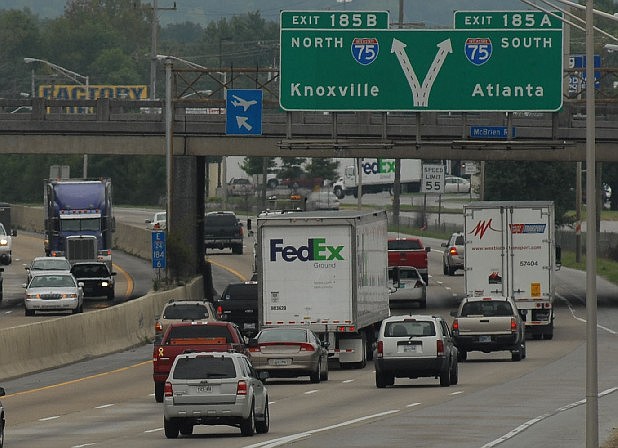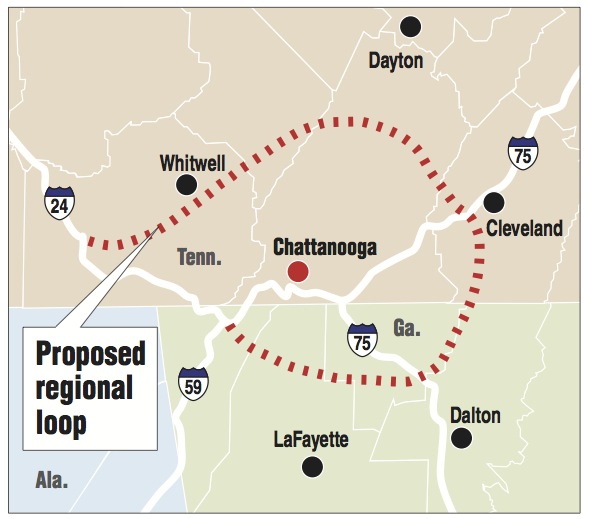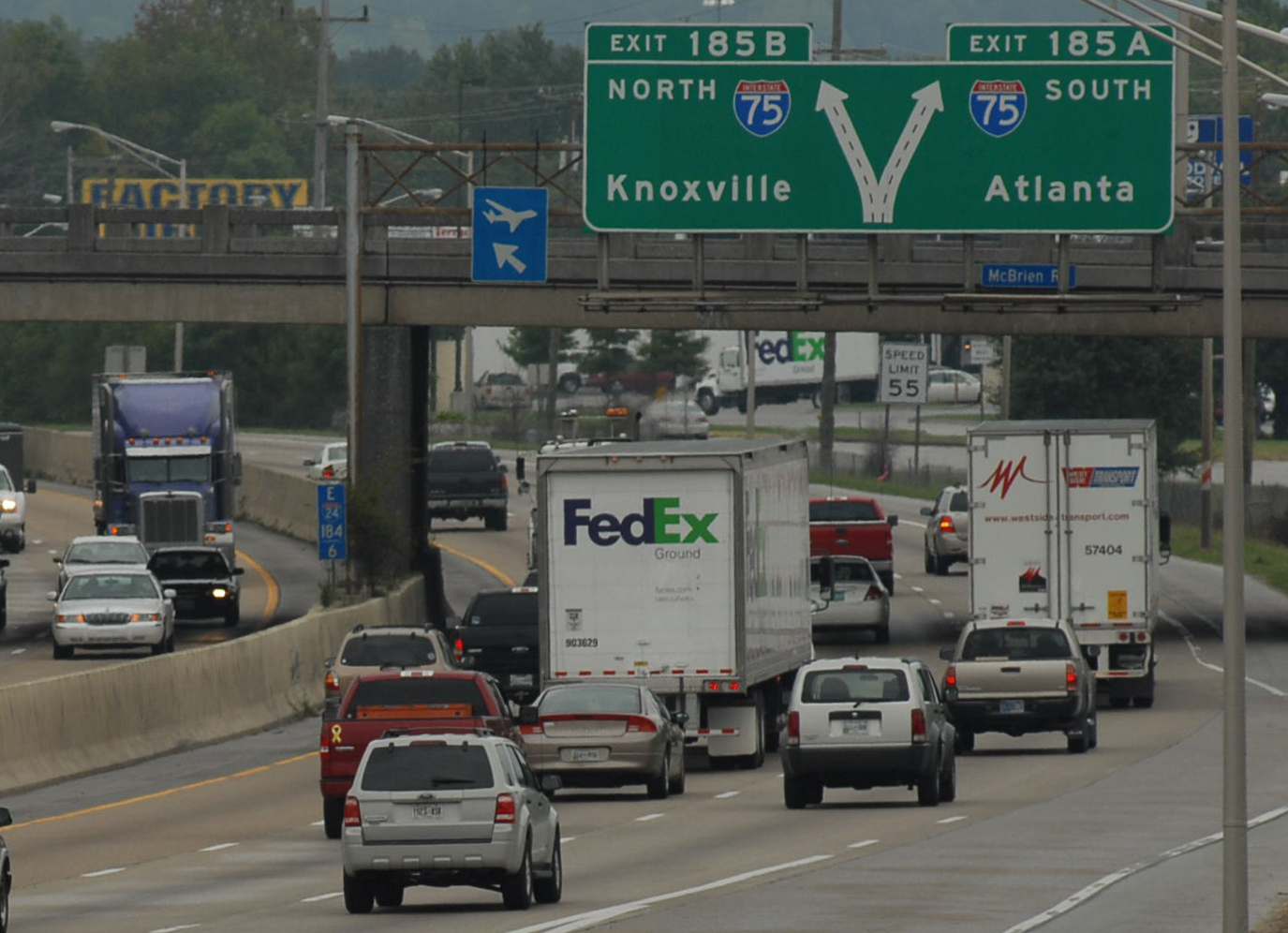Chattanooga bypass? Highway encircling metro area eyed to ease traffic, promote development
Wednesday, June 11, 2014
WHAT'S NEXTPublic comment on the loop highway and other ideas will be reviewed by Thrive 2055 officials. By this fall, they hope to have strategic growth plans in regional transportation, economic development, education and work force training, and natural treasures as the planning effort moves into its third and final year.
The biggest road project in the Chattanooga area since construction of the interstate highways more than four decades ago has emerged from the region's long-range planning effort.
Planners are eyeing a perimeter highway that could loop around Chattanooga, easing bottlenecks in the city, helping area commuters and better connecting cities such as Dalton and LaFayette in Georgia with Cleveland and Dayton in Tennessee.
"I think it's a good idea," said Gary Farlow, the Cleveland/Bradley County Chamber of Commerce's chief executive. "We've felt like there needed to be a route around Chattanooga."
While just a concept at this time, the loop is seen as improving east-west connectivity while opening new parts of the region for economic development.
The highway, which could be about 200 miles in length, is included in one of Thrive 2055's four newly unveiled growth scenarios for the three-state, 16-county area. Thrive 2055 officials are taking the scenarios across the region this month and next to garner feedback as they craft a 40-year growth plan.
For the loop, there's no time frame for construction nor a cost estimate. Also, there's no indicator of how many lanes it would have or whether it would be built to interstate highway specifications.
But recently completed loop highways elsewhere have cost hundreds of millions of dollars. One around Chattanooga is likely to require a major commitment from local and state governments in Tennessee and Georgia, and federal money too.
For example, the southern half of Nashville's outer belt, Tennessee 840, was completed two years ago at a cost of $763 million. When the 78-mile bypass was proposed in 1986, it was projected to cost about $351 million.
In addition to cost, such perimeter roads have drawn concerns about their environmental impact and potential to contribute to sprawl.
In the late 1990s, amid similar worries, Georgia shelved a proposed highway that would have encircled Atlanta in addition to the existing Interstate 285.
Larry Brooks, who heads the Walker County, Ga., Development Authority, said that while such concerns are warranted, "smart growth" planning efforts could be put in place. Walker County has provisions on the books to limit growth and plan for it, he said.
"We always have that ability to look down the road and do what needs to be done to make sure it wouldn't be detrimental," Brooks said.
Brian Anderson, the Greater Dalton Chamber of Commerce's chief executive, said it's estimated that 80 percent of existing traffic isn't stopping in Chattanooga or the area, but just passing through.
Area commuters would benefit as a new loop highway would provide another alternative to an existing interstate, saving them time and money, he said.
"We know we don't want to become another Atlanta," Anderson said he heard people say when the Thrive 2055 planning effort began nearly two years ago.
J.Ed. Marston, the Chattanooga Area Chamber of Commerce's vice president of marketing, said there's no hard and firm route for a loop highway, and he sees it more akin to I-285 than the outer perimeter road Georgia decided not to pursue.
Also, such a highway could work if it were built in pieces and not totally surrounding the city, he said.
Still, it's too early for Chattanooga Chamber officials to have an opinion, Marston said.
"It's not a proposal," he said. "We're in a listening mode right now."
Maggie Neff, Thrive 2055's communications and outreach coordinator, said the idea came out of the initiative's first round of efforts to gain citizen input related to general freight mobility.
"The loop is an attempt to bring in that feedback and [tell] people this is perhaps what it could look like," she said. "What are your thoughts? What changes would you like to see? What implications could there be?"
Anderson said that if there's a consensus on the loop, it still could take years to get into budgets and move ahead with construction. But the earlier the effort is started, the sooner steps can be taken to get through the political process, he said.
Farlow said one advantage of working together as a region is that the federal government likes that concept.
"It would be costly," he said. "That's a massive project in funding."
Brooks said that, for Walker County, a loop road would give it direct interstate access, opening it up to more economic development projects as well as commercial growth such as added restaurants.
He termed the loop road idea "a good one to pursue."
Contact Mike Pare at mpare@timesfreepress.com or 423-757-6318.


